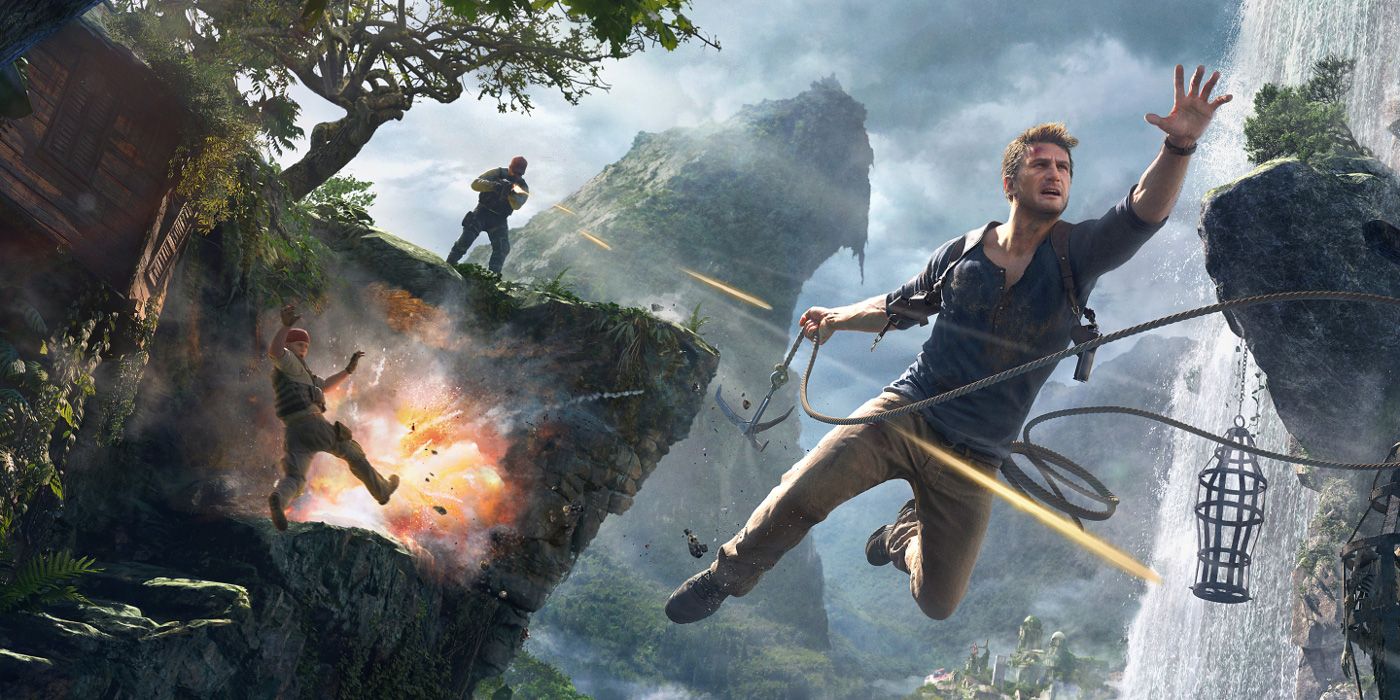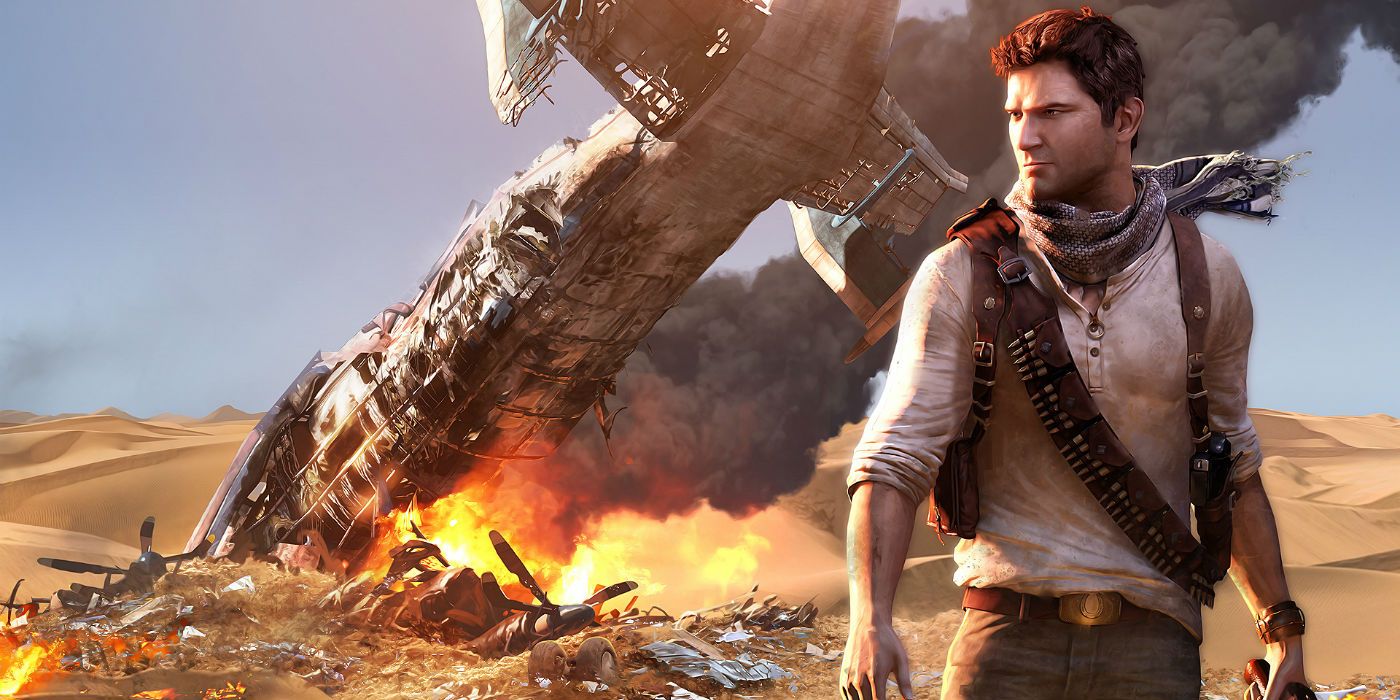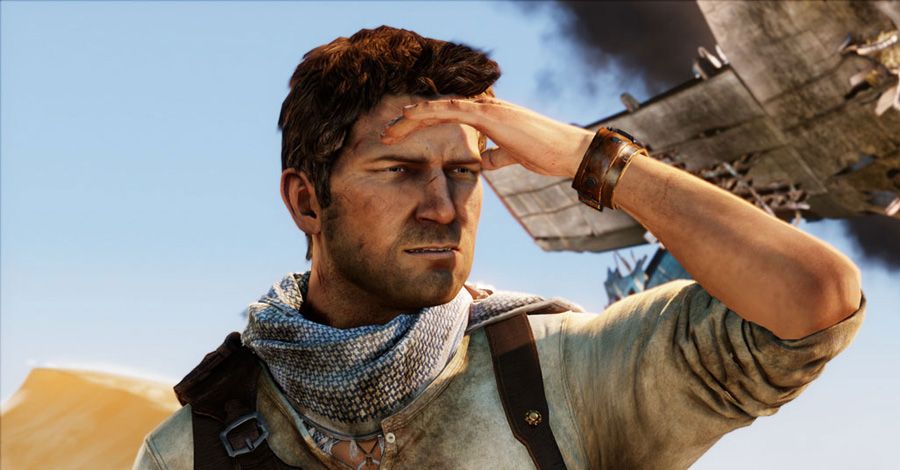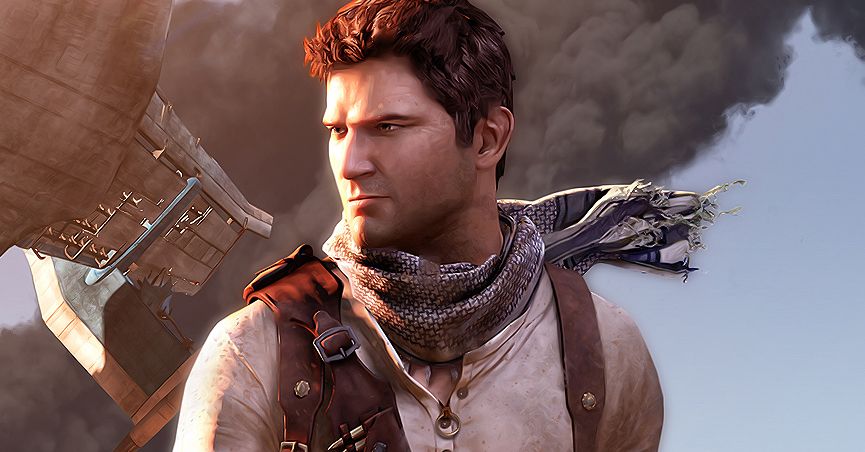Few video games have influenced the modern game industry like the Uncharted series. The franchise blends platformers and shooters into one of the most palatable gameplay formulas around. Action-packed, narrative-driven, and full of giant set pieces, Uncharted has left footprints in some of the biggest games in recent memory -- God of War, Control and, most recently, Star Wars Jedi: Fallen Order. While these were all met with love from fans and critics alike, what makes this video game structure so appealing? More importantly, with so franchises taking cues from Uncharted, is this the only future for action games?
Obviously, many of Uncharted's closest gameplay relatives are more than mere clones of the series. God of War isn't just a linear action game with big set pieces. It has a deep combat system and RPG-like elements that Uncharted totally lacks. Jedi: Fallen Order takes things a step further as well -- not only does it feature blockbuster action and a story-driven campaign, but it comes with extremely challenging combat and a "Metroidvania" level design that makes Uncharted's linear chapters look simple. That might seem like a jab at Uncharted, but it isn't. Simplicity is exactly what makes the series so beloved and successful.
Uncharted is linear; it contains straightforward mechanics, and it puts all of the focus on the way the game feels. Once you learn to jump, fight, and climb, the game's linear design takes care of the rest. Each chapter feels like a monumental ordeal -- not because Uncharted is especially challenging, but because the game's scripted action makes each moment look stressful and daunting. For example, let's look at Uncharted 2: Among Thieves and its iconic second act.
Throughout four different chapters, Uncharted's Nathan Drake must stowaway on a moving train and fight his way to the front. This involves scaling the sides of the train, surfing atop train cars, and several intense shootouts. After a battle against a helicopter (destroyed by hijacking a tank while on the train), the train derails and teeters off of a cliff. Famously, Drake has to scale the entire train in time or fall to his doom. Now, as over-the-top and ridiculous as that sounds, the level isn't actually that challenging.
Aside from the combat encounters -- which is where the challenge really lies -- the game mostly plays itself. This is one of the biggest criticisms of Uncharted's design. If you aren't fighting, you're climbing, and Uncharted's climbing is a breeze. Sure, Drake might spend half of the level dangling from a moving train, but survival is guaranteed as long as the player holds a direction and taps the jump button.
Now, Uncharted's traversal system is what other games often mimic the most. Climbing sequences always have well-defined ledges (usually brightly painted) indicating the next spot to move towards. Drake locks on to ledges as well, so each one only requires a button tap. Is it simple? Yes. Does it feel awesome? Absolutely. The movement mechanics are easy to master, and while they aren't particularly challenging, they allow for the illusion of danger and flashy action. You'll rarely fall off the train, but you'll feel like one wrong move means death. This is what makes Uncharted so satisfying-- while some people may see this as bland game design, it's probably some of the purest escapism that video games can offer.
Despite the simple-yet-exhilarating gameplay, does it benefit the game industry to see this in every third-person action game? Sure, it makes games less unique, but could this be a way to make fantastical stories and experiences -- ones that may lack a well-defined gameplay structure -- easier to create? Let's use Jedi: Fallen Order as a lens of analysis. There hasn't been a Star Wars action game of widespread renown since the Jedi Outcast games. Thankfully, Jedi: Fallen Order does Star Wars right, and the game benefits from its Uncharted-inspired action.
Fallen Order features the same well-defined ledges and simple controls, as well as the high-energy set pieces and dangerous climbing sequences. Climbing maintains a sense of urgency and footholds still crumble under the player's feet, but everything turns out fine so long as the player keeps moving. Despite Nathan Drake's clear influence, Fallen Order is still way more challenging and a wildly different experience than Uncharted. The same goes for all of the previous games we mentioned -- following the Uncharted formula only helps raise the stakes.
Jedi: Fallen Order takes those Uncharted elements and supplements them. For example, aside from Uncharted's movement, the game features: a deep and twitchy combat system, a detailed progression system, non-linear levels, weapon customization, and more. All of these are absent in the Uncharted series. With all of these in mind, it isn't difficult to see that Fallen Order is a different beast overall despite Uncharted's signature stamp. That structure is a surefire way to make games feel more challenging than they are and allows for developers to find more creative ways to make their games distinct.
Uncharted has changed games forever. Despite the somewhat divisive nature of its influences, the franchise's gameplay has become the new standard for action games. Some gamers don't like that, and that stance makes perfect sense, especially for players who relish a learning curve. Uncharted is often the illusion of challenge -- so much so that sometimes it feels more like a movie you steer, and not a game you actually play.
With that said, this iconic genre of action isn't going anywhere. If Fallen Order, Control, God of War, and other blockbusters are any indication, Uncharted's blueprint will only evolve from here on out. Developers shouldn't look at Uncharted as something to echo, but as something to build upon to create that next exhilarating train sequence. The last decade features some of the best action games ever made -- and each innovation, no matter where it comes from, can only serve to make games more immersive, more escapist, and more fun than they've ever been before.




